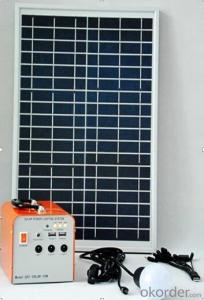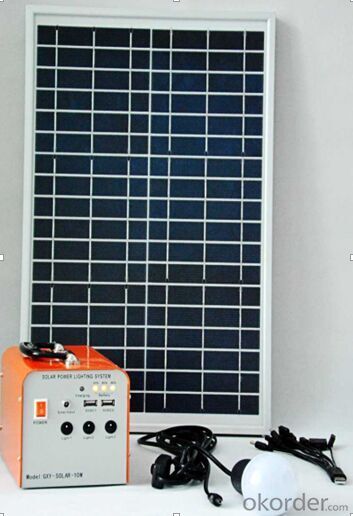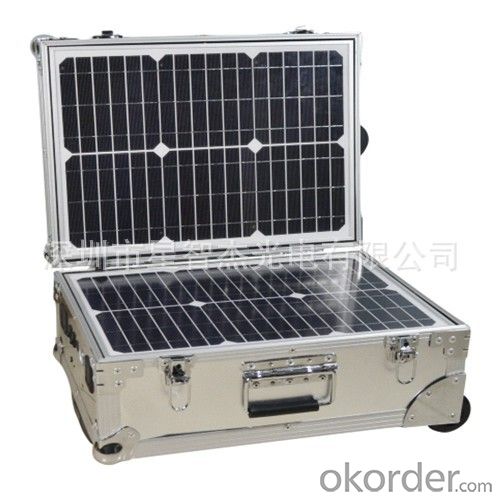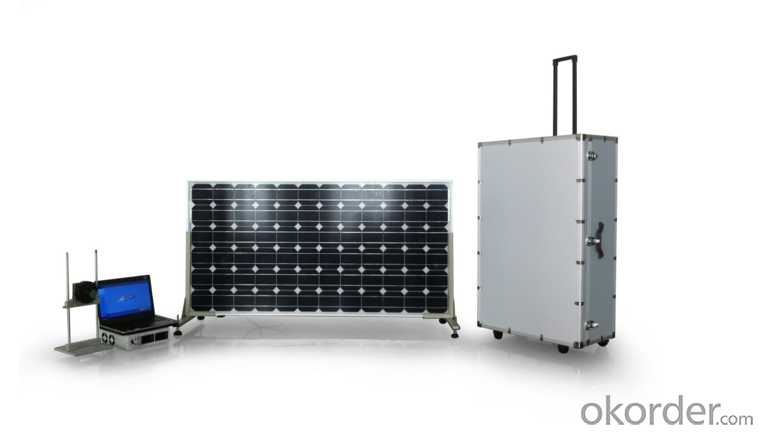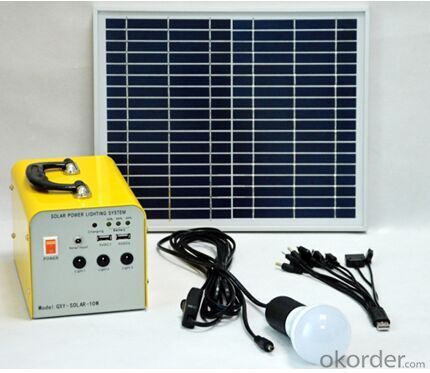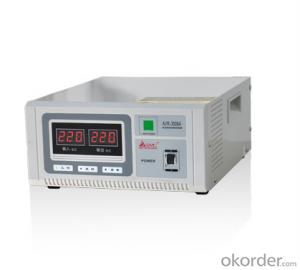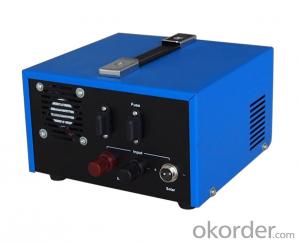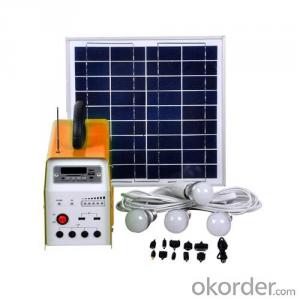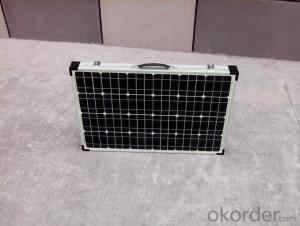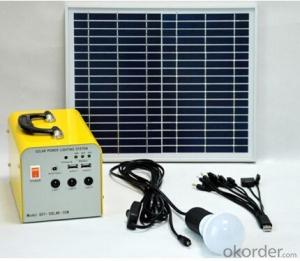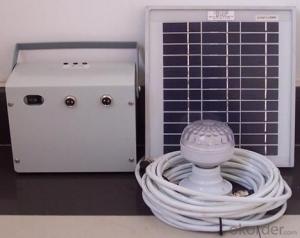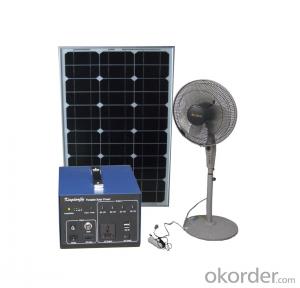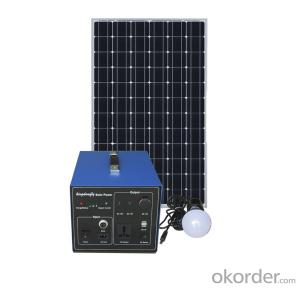Sunlight Solar Energy Systems - Solar Portable System AN-S10W
- Loading Port:
- Shanghai
- Payment Terms:
- TT OR LC
- Min Order Qty:
- 0 set
- Supply Capability:
- 10000 set/month
OKorder Service Pledge
OKorder Financial Service
You Might Also Like
Specification
Description of Solar Portable System AN-S10W
Compatible portable solar power supply, also called solar mobile power, it includes: solar panel, charge controller, discharge controller, electric charge controller, inverter, outside enlarge capacity interface and battery, etc. Photovoltaic portable power supply can work in solar energy and ordinary power two modes, and can automatically switch. Photovoltaic portable power supply is used widely is the emergency relief, tourism, army, geological prospecting, archaeology, schools, hospitals, Banks, gas stations, comprehensive building, highway, substation, family camping or outdoor activities such as emergency power ideal power supply equipment.
Specifications of Solar Portable System AN-S10W
1. Solar Panel: 10W 18V
2. Battery: 12V5A lead-acid battery
Input terminal: 1 DC input, 9V
Output terminal: 4 output terminals, including:
1x USB output, 5V 1A;
3x DC outputs, 6V 1A
Switch: one square On/Off general switch
Indication lamp: 2 pcs; Red one is for charging indication, Green one is for operating indication.
Accessories of Solar Portable System AN-S10W
1. 2pcs 3W led bulbs;
2. 1pc 3m connection wire between solar panel and cabinet;
3. 2pcs lamp holder with 3m wire;
4. 1pc AC charger
Technical Data of Solar Portable System AN-S10W
| Internal Package Size (cm) | 26*16.5*21 |
| Packing QTY | 4 |
| External Package Size (cm) | 30*47*43.5 |
IMages of Solar Portable System AN-S10W
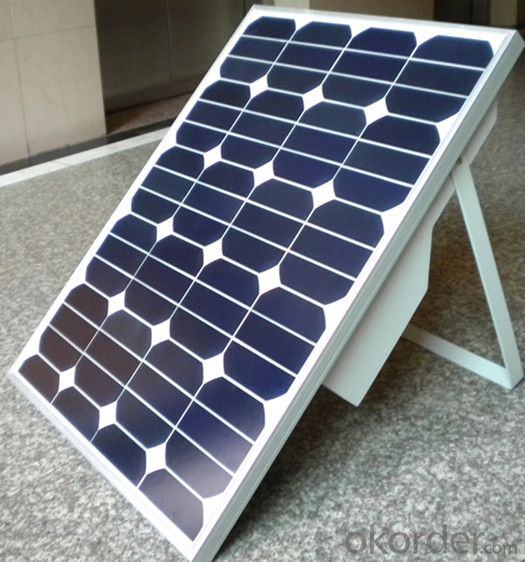
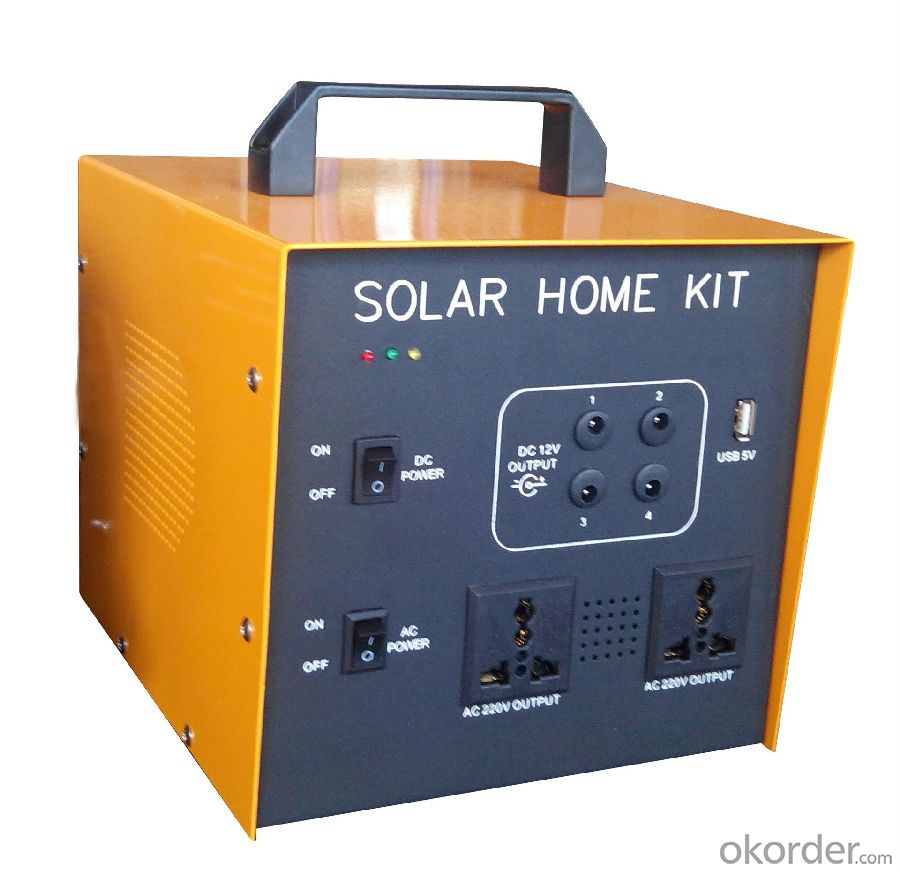
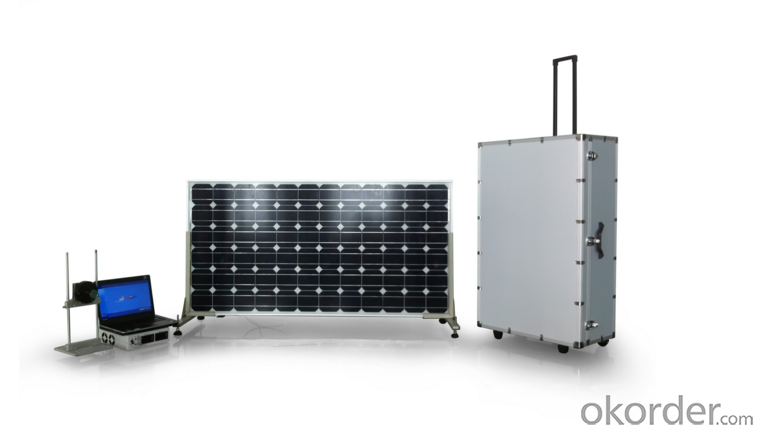
FAQ:
1. How long will my inquiry get response?
Your inquiry related to our products or prices will be replied within 24 hours.
2. Can I get professional service and suggestion?
Well-trained and experienced staffs to answer all your questions in fluent English.
3. Do you accept OEM or customized design?
OEM & ODM, any your customized lightings we can help you to design and put into product.
4. What if I need specific design?
Distributorship are offered for your unique design and some our current models.
- Q: Can solar energy systems be used to power agricultural operations?
- Yes, solar energy systems can definitely be used to power agricultural operations. Solar panels can be installed on rooftops or in open fields to generate electricity, which can then be used for various agricultural activities such as irrigation, lighting, and powering machinery. Solar energy provides a sustainable and cost-effective solution for powering farms, reducing reliance on fossil fuels and helping to mitigate environmental impact.
- Q: Can a solar energy system be installed in an area with a high bird population?
- Yes, a solar energy system can be installed in an area with a high bird population. However, additional precautions may be necessary to mitigate potential risks and protect both the birds and the solar panels.
- Q: Is solar energy reliable?
- Yes, solar energy is reliable. Solar panels can generate electricity as long as they are exposed to sunlight, which is abundant and available in most regions. Additionally, solar energy systems have a lifespan of 25-30 years, and with proper maintenance, they can consistently produce power during that period. The advancements in solar technology have also made it more efficient and cost-effective, making it a reliable source of renewable energy for both residential and commercial applications.
- Q: Do solar energy systems require grounding?
- Yes, solar energy systems do require grounding for several reasons. Firstly, grounding helps to protect the system and its components from electrical faults, lightning strikes, and power surges by providing a safe path for excess electrical energy to dissipate into the ground. Additionally, grounding helps to minimize the risk of electric shock for individuals who may come into contact with the system. Overall, proper grounding is essential for the safe and efficient operation of solar energy systems.
- Q: What are the different mounting options for solar energy systems?
- The different mounting options for solar energy systems include roof mounts, ground mounts, pole mounts, and tracking mounts. Roof mounts are the most common and are installed directly on the roof of a building. Ground mounts are installed on the ground and are suitable for larger installations or areas with limited roof space. Pole mounts are attached to a single pole and can be used in both residential and commercial settings. Tracking mounts are designed to follow the sun's movement throughout the day, maximizing energy production.
- Q: Are there any risks of electrical fires with solar energy systems?
- Yes, there are potential risks of electrical fires associated with solar energy systems. While solar energy systems are generally considered safe, there are a few factors that can increase the risk of electrical fires. One of the main risks is improper installation or maintenance of the system. If the wiring is not done correctly or if there are issues with the electrical connections, it can lead to overheating and potential fire hazards. Additionally, if the solar panels are not properly grounded or if there are faults in the system, it can also increase the risk of electrical fires. It is crucial to hire qualified professionals for installation and regular maintenance of solar energy systems to minimize these risks. Fire safety precautions such as using appropriate wiring, installing proper fire detection and suppression systems, and ensuring adequate ventilation around the solar panels can further reduce the risk of electrical fires. Overall, while solar energy systems are generally safe, it is important to be aware of these risks and take necessary precautions to mitigate them.
- Q: How do solar energy systems impact the reduction of fossil fuel consumption?
- Solar energy systems have a significant impact on the reduction of fossil fuel consumption. One of the main advantages of solar energy is that it harnesses power from the sun, which is a renewable source of energy. This means that solar energy systems do not require the burning of fossil fuels, such as coal or natural gas, to generate electricity. By using solar energy, we can reduce our dependency on fossil fuels for electricity generation, thereby lowering our carbon footprint and mitigating the negative environmental impacts associated with fossil fuel consumption. Solar energy systems also contribute to the reduction of fossil fuel consumption through the concept of net metering. Net metering allows individuals or businesses with solar panels to sell excess electricity generated back to the grid. This means that during times of high solar energy production, when the system generates more electricity than is being used, the excess energy is fed back into the grid. As a result, less electricity needs to be produced by fossil fuel-based power plants to meet the demand, reducing the overall consumption of fossil fuels. Furthermore, the adoption of solar energy systems can lead to a decrease in the demand for fossil fuel-based electricity, which in turn can drive down the price of electricity. This price reduction can make renewable energy more economically competitive, encouraging greater adoption of solar energy systems and further reducing the demand for fossil fuels. In summary, solar energy systems play a vital role in reducing fossil fuel consumption. By utilizing the sun's energy, solar power systems eliminate the need for burning fossil fuels for electricity generation. Through net metering and the potential for price reductions, solar energy systems contribute to the overall reduction of fossil fuel consumption, promoting a cleaner and more sustainable energy future.
- Q: Can solar energy systems be used for water heating in swimming pools?
- Yes, solar energy systems can be used for water heating in swimming pools. Solar panels can be installed to capture the sun's energy and heat the water in the pool, providing an eco-friendly and cost-effective solution for pool heating.
- Q: Do solar energy systems work at night?
- Solar energy systems do not work at night because they rely on sunlight to generate electricity. Solar panels convert sunlight into electricity through the photovoltaic effect, where photons from the sun's rays knock electrons loose from atoms, creating a flow of electricity. Without sunlight, there is no source of energy to power the system. However, it is worth mentioning that some solar energy systems can store excess energy produced during the day in batteries, which can be used to power appliances or lights at night.
- Q: What is the lifespan of solar cells used in solar energy systems?
- The lifespan of solar cells used in solar energy systems typically ranges from 25 to 30 years.
Send your message to us
Sunlight Solar Energy Systems - Solar Portable System AN-S10W
- Loading Port:
- Shanghai
- Payment Terms:
- TT OR LC
- Min Order Qty:
- 0 set
- Supply Capability:
- 10000 set/month
OKorder Service Pledge
OKorder Financial Service
Similar products
Hot products
Hot Searches
Related keywords
